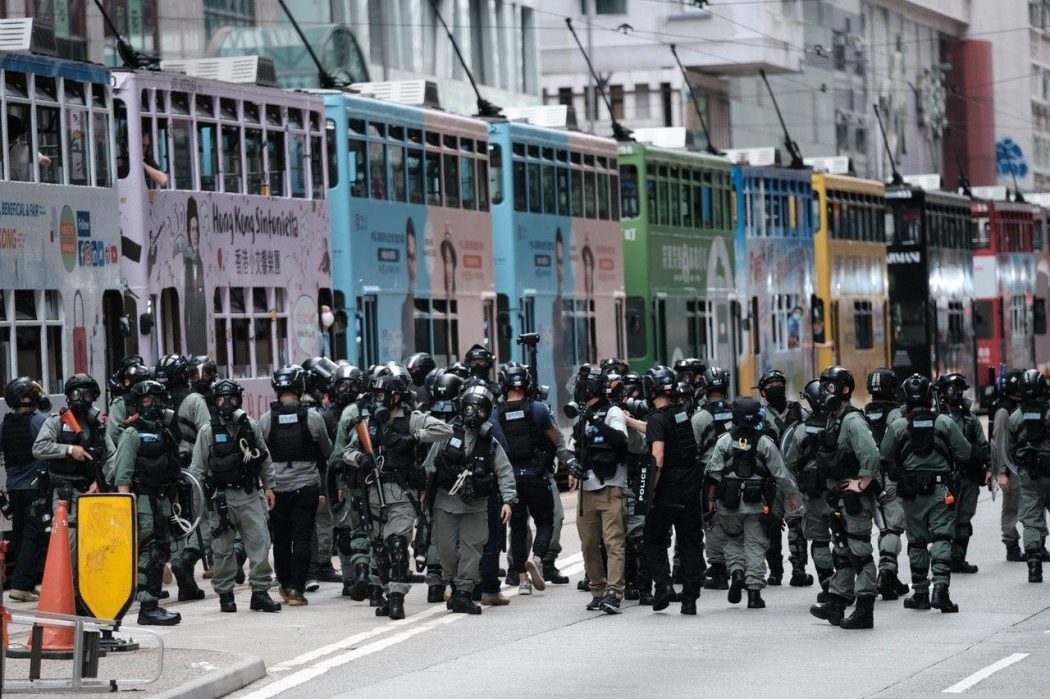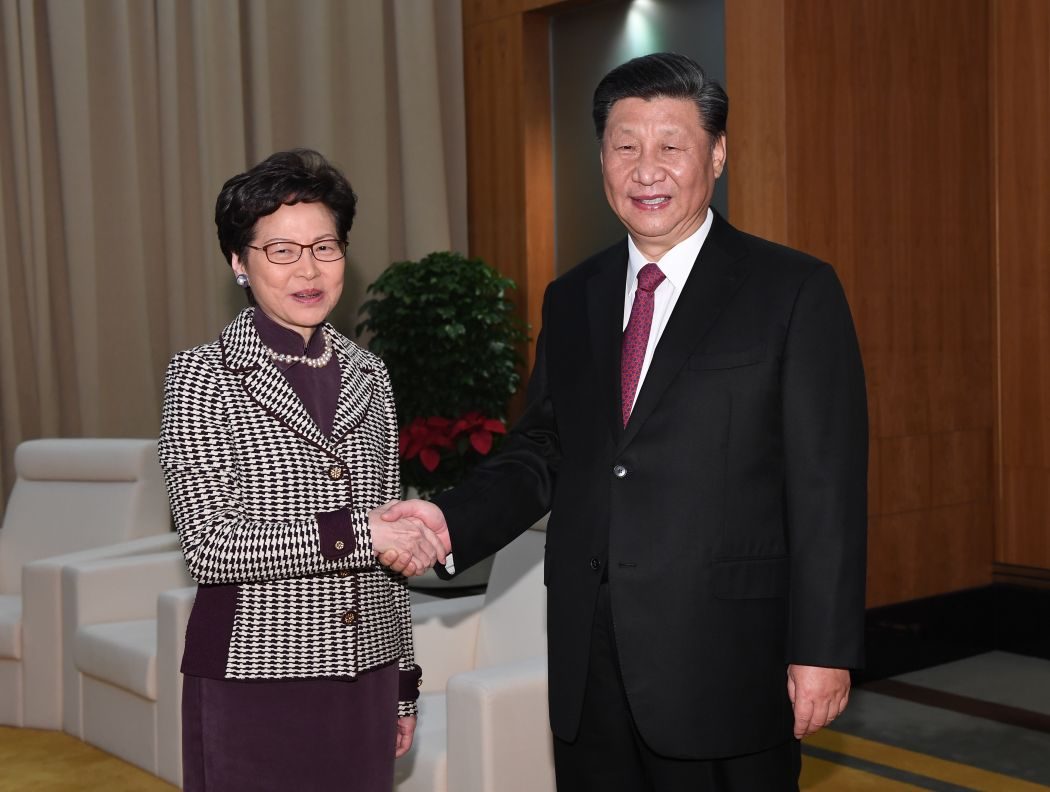By US Congressman Ted Yoho
Secretary of State Pompeo’s announcement last week that the US Government will not certify Hong Kong as autonomous from Beijing followed swiftly by President Trump’s decision to suspend the US- Hong Kong extradition treaty and revoke the city’s special export status, is a watershed moment in the US-China relationship.
For years, the Chinese Communist Party (CCP) has chipped away at the city’s autonomy while reaping the financial benefits from its special trade status with the rest of the world. After so many infringements on Hong Kong’s model of self-governance, the imposition of national security legislation on Hong Kong—which would violate the “One Country, Two Systems” model—is the final straw.

Hong Kong stands at cross-roads. In the days and weeks ahead, the city’s immediate future will be decided. Will Hong Kong continue to be an open city and a major international financial center? Or will it become yet another Chinese territory under the strict authoritarian grip of the CCP, where basic freedoms are outlawed, and protest is met with swift punishment?
These two futures are as stark as night and day, and they illuminate the severity of the deteriorating situation in Hong Kong following an announcement by the CCP that it will unilaterally impose national security legislation on Hong Kong and bypass the authority of the city’s legislative body. This flagrantly violates China’s commitments under the Sino-British Joint Declaration to maintain Hong Kong’s autonomy, and would authorize a number of vague draconian charges including ‘sedition, ‘subversion’, and ‘colluding with foreign forces’. These charges would be enforced by the Chinese National Security Bureau, who maintains a reputation for torture, handpicks judges loyal to Beijing, and would be operating in the city for the first time.
The destruction of “One Country, Two Systems” and the death of an autonomous Hong Kong is a matter that should concern everyone. Hong Kong remains an indispensable financial center for international investors, with US$95 billion in Western investment flowing into mainland capital markets via Hong Kong between 2016 and 2019. The city is also the largest offshore center for bond sales globally and was home to 73% of all initial public offerings from Chinese mainland companies between 2010 and 2018.

Hong Kong’s intrinsic value to the international financial system makes the abrupt encroachment from mainland China all the more concerning, as the city’s continued role as a global financial centre is directly linked to its autonomous status, the free exchange of information, its common law system, and its separate customs status.
Despite claims by the Hong Kong Government that international investors have nothing to fear from new national security laws, their imposition will eliminate any pretence of the rule of law and sabotage the city’s viability as an international financial center. It will spur an exodus of international businesses and news organizations along with Hong Kong’s skilled international workforce. This will have huge financial consequences for the global economy, turning a COVID induced recession into a CCP sponsored depression and unleashing untold misery for many of the world’s poor.
The violation of Hong Kong’s autonomy is not only a threat to the way of life of the people of Hong Kong but also a direct challenge to the international rules-based order itself. If the Chinese Communist Government and President Xi are unwilling to keep their word when it comes to Hong Kong, how can the world trust them on other international commitments, especially those governing nuclear proliferation, global health security, trade and the territorial integrity of its neighbors.

The timing of this national security legislation is not a coincidence. President Xi Jinping is relying on the international community’s focus on recovering from the economic and public health consequences of COVID-19 to distract from developments in Hong Kong. He is gambling that many countries are not willing to risk Chinese investment and trade by standing up for the island territory. The US Government must unite with our international partners, including the United Kingdom, European Union, members of the G7, and NATO, to prove him wrong.
We have already witnessed the oppression of over a million Uighurs and other ethnic minorities imprisoned in concentration camps in Xinjiang. We have seen China’s campaign of extortion over its neighbours through a mixture of intimidation and debt trap diplomacy. We continue to witness threatening rhetoric and military moves made towards Taiwan. Failing to stand with the people of Hong Kong now would betray decades of promises and commitments made by nations everywhere and herald the fall of a new iron curtain.
Thankfully, some are speaking out. I recently joined an international coalition, led by former Governor of Hong Kong Lord Patten, comprised of over 700 lawmakers in 37 countries who condemned the CCP’s breach of the Joint Declaration and called for sympathetic governments everywhere to stand with the people of Hong Kong. But it will take more than harsh words to solve the issue at hand.

Beijing must recognise the self-destructive nature of its actions. If they continue down this path, it will destroy Hong Kong, irreparably damage US-China relations, and set off a chain of events with serious geo-political consequences for the entire international community. The CCP must come to their senses, drop the national security law, and respect the rights and freedoms afforded to the people of Hong Kong.
If President Xi Jinping is unwilling to back down, the international community must be ready to stand with Hong Kong. The announcement by the Secretary of State is an important step, but we must be ready to go further and punish those individuals and businesses who deliberately violated the city’s autonomy under the terms of the Joint Declaration.
This is why I have joined forces with Representative Brad Sherman in introducing the Hong Kong Autonomy Act, which would impose mandatory sanctions on individuals and banks that violate China’s obligations to Hong Kong under the Joint Declaration and the Basic Law. This is only the first step of many towards protecting the rights and freedoms of those in Hong Kong.

The terms of the Handover Agreement were clear. Sound policymaking requires the world to recognize that Beijing has broken its word and to act accordingly. If the international community doesn’t come together to pressure Beijing to reverse course now, then we will all live with the disastrous consequences for decades to come.
Rep. Ted S. Yoho (R-FL) Lead Republican for the House Foreign Affairs Subcommittee on Asia, the Pacific, and Nonproliferation. He was one of the initial co-sponsors of the Hong Kong Human Rights and Democracy Act.
